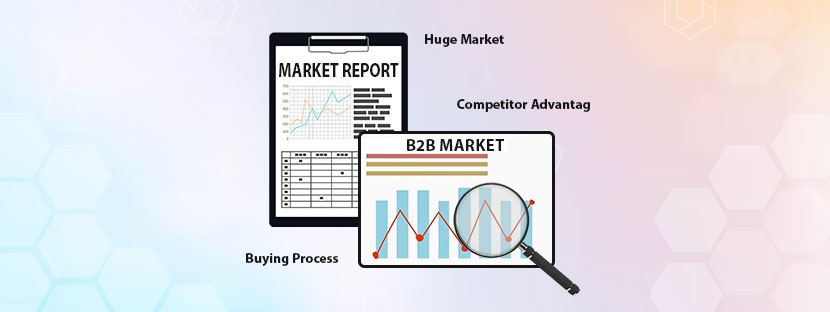In This Article
- Understanding the Challenges of Invoice Processing
- Common Issues in Traditional Invoice Processing
- The Impact of Inefficient Processing on Business Operations
- Key Benefits of Efficient Invoice Processing for Enterprises
- How to Optimize Invoice Processing for Enterprises
- Choosing the Best Invoice Processing Solution for Enterprises
Invoices are the lifeblood of any enterprise, ensuring smooth cash flow and keeping business operations running. Yet, many companies still struggle with slow, error-prone invoice processing that leads to delayed payments, strained vendor relationships, and unnecessary costs.
If you’ve ever dealt with lost invoices, manual data entry nightmares, or approval bottlenecks, you know just how frustrating the process can be.
But what if invoice processing didn’t have to be a headache? Imagine a system that automates tedious tasks, accelerates approvals, and eliminates costly mistakes. Embracing modern invoice processing for enterprise unlocks faster payments, greater accuracy, and better financial visibility.
In this guide, we’ll explore how optimized invoice processing can transform business operations and why it’s a game-changer for enterprises today.
Understanding the Challenges of Invoice Processing
Despite its importance, invoice processing remains a time-consuming and error-prone task for many enterprises. Traditional methods involve excessive paperwork, manual data entry, and lengthy approval cycles that slow down operations. These inefficiencies lead to payment delays, financial mismanagement, and compliance risks.
The need for a seamless and automated approach has never been greater for enterprises handling thousands of invoices monthly. A well-optimized system saves time and enhances accuracy, ensuring that financial transactions are processed smoothly and without errors.
Common Issues in Traditional Invoice Processing
Human Errors and Inconsistencies: Manual invoice processing often leads to mistakes in data entry, incorrect calculations, and duplicate payments. These errors require time-consuming corrections, causing financial discrepancies and inefficiencies.
Slow Approval Workflows: Invoices frequently get delayed in approval cycles due to reliance on paper-based processes or inefficient communication. These bottlenecks impact cash flow and strain vendor relationships.
The Impact of Inefficient Processing on Business Operations
Increased Operational Costs
Processing invoices manually demands extensive labor and resources, driving up operational expenses. Enterprises end up spending more on administrative tasks instead of focusing on strategic initiatives.
Compliance and Security Risks
Without a standardized system, enterprises struggle to maintain compliance with tax regulations and financial reporting standards. Additionally, the risk of fraud increases due to a lack of proper oversight.
Key Benefits of Efficient Invoice Processing for Enterprises
A modern invoice processing system transforms how enterprises handle financial transactions. By automating key tasks, companies can reduce errors, enhance efficiency, and improve financial transparency. The benefits extend beyond just cost savings — businesses gain better control over their cash flow, strengthen vendor relationships, and reduce compliance risks.
Faster Processing and Approval Cycles
Faster Processing and Approval Cycles
Improved Accuracy and Compliance
Enhanced Financial Visibility and Reporting
Real-Time Financial Insights
Automated invoice systems provide businesses with instant access to financial reports and payment histories, enabling smarter decision-making.
Better Cash Flow Management
With improved visibility, enterprises can track outstanding invoices and optimize their cash flow strategies to maintain financial stability.
How to Optimize Invoice Processing for Enterprises
To stay competitive, enterprises must embrace advanced invoice processing solutions. Leveraging automation, AI, and cloud-based technologies ensures streamlined workflows and enhanced efficiency. By implementing best practices, businesses can minimize delays, reduce costs, and improve overall financial operations.
Leveraging AI and OCR Technologies
Utilizing Cloud-Based Invoice Management
At present, working in a remote setup is quite popular, where employees are processing bug transactions securely and safely. Accessing the data in real-time is possible due to the cloud data storage system. With this, employees can have real-time access to all the invoices. Cloud invoice processing for enterprises is necessary in modern organizations.
Integrating Invoice Processing with ERP Systems
An invoice goes through several stages to get processed. Therefore, at your end (the enterprise), more than one employee will be involved during the processing period. Hence, to make the process easy, the integration of invoice processing with EPR is necessary.
When ERP gets integrated with invoice processing, you can track each activity easily. The distribution of work also gets channelized, and it can save time hugely.
Choosing the Best Invoice Processing Solution for Enterprises
If finding the best invoice processing for enterprise solutions is the matter, then first, we need to confirm a few facts. Among them, the number one matter is which application your organization needs to process invoices. There are plenty of applications available in the market that offer automated invoice processing nowadays. However, choose any application that has the following features;
If the above-mentioned things are there, we are ready to go. But here is one crucial thing you need to keep in mind: human verification cannot be ignored. Many companies outsource invoice processing services even if they have automated invoice management systems.
Thus, you need to choose a compatible application along with a humanly verified mechanism for your enterprise invoice processing. Hence, after that, you can bring efficiency to the workflow.











